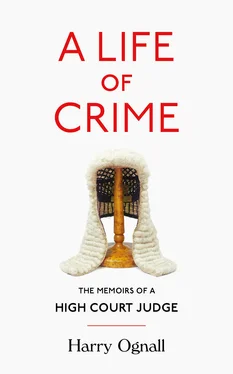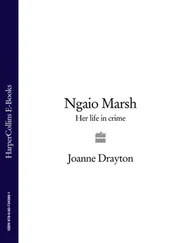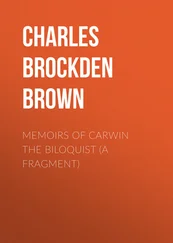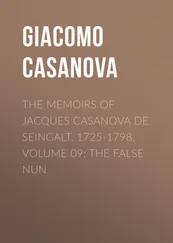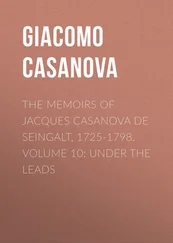My father, Leo, was the oldest of my grandfather’s three sons and a daughter. He was born in 1908 and left school at sixteen. Thereafter, he worked first in Glasgow and then in Manchester in a variety of generally mundane jobs until the outbreak of the Second World War. (For a short time he was a cub journalist for a national newspaper, and achieved temporary fame by riding pillion on the Wall of Death at a visiting circus.) He worked for some years for a very large mail-order company. That bred in him a deep-seated and lifelong aversion to working for anybody save himself. He was adamant that both my young brother, Michael, and I should become professional men. (Michael was to qualify as a doctor.)
At the outbreak of war in 1939, his extreme short sight meant he was excused military service. He spent the war years working as a supervisor at an ordnance factory near Leeds that produced military vehicles and ammunition.
Providentially, he found his true niche in life in his middle years. He had always been an avid reader of detective fiction. I can remember a monthly magazine devoted to the genre – Black Mask , which was always in our house. With the end of the war, and with no obvious employment in prospect, he decided to give writing a go. It was a courageous decision. He had a wife and three children to support, and no guarantee of success, but against the odds, it worked. His first offering to Collins publishers was accepted. Thereafter, until his death in 1979 he wrote under two pseudonyms some four detective novels a year. The royalties, while never very substantial, more than kept the wolf from the door. Above all, it fulfilled his fierce wish for independence.
My father’s small stature may well account for the fact (which I only recognized after his death) that he never rid himself of deep feelings of inadequacy. Only when going through his effects did I gain true insight into his real self. Over the last ten years of his life he wrote and assembled a large collection of reflections on life entitled ‘Thoughts while Thinking’. To my distress, I realized from reading these that I had scarcely known my father at all. His musings are sometimes provocative, sometimes touching, often profoundly wise, and throughout suffused with melancholy. I read them with a growing sense of wonder, and with sadness. Among them, I found this – written a few years before he died:
All my life I have been a failure. My one achievement is that I am now honest enough to admit it.
How often since I first read those words have I wished I could tell him how wrong he was.

My mother, Cecilia (‘Cissie’ to all her friends), was born in 1909 of Polish immigrant parents who at the turn of the century had fled the pogroms with their families, and later married in the UK. Like many other Jewish refugees, they settled in Leeds. (The city was then a centre for bespoke tailoring, and my grandfather Noah was a skilled tailor.) My maternal grandmother (another Bessie) never learned either to read or write in the English language. Noah could read sufficiently to master the race cards published in the newspapers. He was an avid gambler.
My mother was a physically attractive woman. She was denied any higher education, but was gifted with a considerable native intelligence, insight and a natural charm. Unlike my father, she enjoyed a wide circle of friends. From time to time she turned her hand to the writing of short stories, some of which were published in magazines such as Argosy . She was a regular and successful entrant to newspaper competitions for verse-writing.
It was in those prehistoric days that the free-standing spin dryer burst upon an astonished world. It was the size of a tiny waste bin, with a spout under which an empty bowl had to be positioned. You placed the wet laundry in the contraption in small quantities, and switched on, whereupon it would bounce about merrily on the kitchen floor while a trickle of water dripped out (sometimes) into the bowl. My mother won one such device with this (as I believe, profound) quatrain:
Quick as a dream
A spark, a stream
Life – at life’s end
Must seem
On the day she died, she left the day’s main Daily Telegraph crossword beside her bed, correctly completed. I have always believed that her literary talents exceeded those of my father, but the ethos of those days was such that she subordinated herself to him in the roles of wife and mother.
Those were my parents. I suppose that to most outward appearances they were a pretty ordinary provincial suburban couple, and in many ways they were. But they had undoubted talents and they shared an unshakeable mission to see their children receive every advantage that they had been denied. An obvious question in view of my future career as an advocate is to ask if either ever demonstrated an ability for public speaking. The answer is ‘no’.
When Neville Chamberlain declared war in 1939 we were living in London. I can still remember hearing planes overhead, and being vaguely aware that they were German. Though I never asked my parents, I have often since wondered at their feelings as they listened to reports of Hitler’s unstoppable progress to the French side of the Channel. They, along with all other Jews in this country, can have been in no doubt at all as to the fate that awaited us if the Third Reich conquered our island.
We were living in Wembley, North London when war with Germany was declared. I was just short of six years old. Along with a huge number of other youngsters living in cities deemed vulnerable to the Luftwaffe, I became an evacuee.
I was taken by my tearful parents to Euston station, tagged with a name badge, a gas mask in a cardboard box slung around my neck. I held a tiny suitcase, packed with such few pathetic items as amounted to a wardrobe for a six-year-old child. Thence I was dispatched to Kendal in the Lake District. I was looked after by a couple named Jackson for what turned out to be just a few weeks. They lived on a smallholding at Cartmel, a village near Grange-over-Sands, north of Morecambe Bay. I recall almost nothing of my time there. I do still however remember the contrast between that beautiful, peaceful, hill-shrouded place and the North London suburban home I had left. I also remember with an involuntary shudder being made at breakfast to drink unpasteurized milk, warm and straight from the cow. I believed at that tender age that I would have preferred the hazard presented by the bombers.
It is not to disparage the kindness of so many people like the Jacksons when I say that, happily, my stay there was a short one. My parents and my very little brother left London and moved to Leeds, where my maternal grandparents had been living for many years, and there I joined them. My father began work (which continued until the end of the war) in his exempt occupation at the huge ordnance factory near the city. Leeds became my home until I left for university.
The remainder of my childhood and adolescence was passed in the city, mainly in a rented semi-detached house in suburban Roundhay, with a large park nearby. For ten years I attended Leeds Grammar School, one of the great northern centres of grammar school education. When I started there in 1942, the fees per term were seven guineas; when I left, they were fifteen guineas (approximately £250 and £400 in today’s money). On one occasion, my mother pawned her engagement ring to pay my fees and those of my brother for that term.
It is strange for me now to recall that, although corporal punishment for young offenders (in the form of birching) disappeared from our criminal law halfway through my ten years at the school, we were no strangers to it in the institution we referred to as LGS. There were two masters who employed it. The swimming instructor kept a piece of chair leg, known to all of us as ‘mutton chop’, that was soundly applied to the wet bum of the last of the class to get out of the pool after the whistle had been blown. The other devotee of similar violence was a bachelor classics master whose motivation I long ago recognized sprang not from a wish to instil discipline, but was beyond doubt the product of perverted sexual instincts. His incessant use of a very long, cylindrical ink ruler on the backsides of his charges was well known and widely feared. He called this weapon ‘Algy’, and would presage its imminent use with the hissed words ‘Algy’s barking.’ Mercifully, he was feared no more after he overstepped the mark with some unruly and very big fifth-formers. They seized him and dumped him bottom first into a very large and deep wicker wastepaper basket so that he was helplessly wedged with his arms and legs up in the air. He was thus found, out in the corridor, by no less a person than the headmaster. It shows how distant was the era when this regime held sway, that it was an accepted commonplace in nearly every boys’ school in the land, and that no parent ever sought to demur.
Читать дальше
